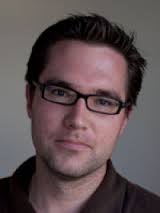Panel
The future of parallel architectures, languages and tools is domain-specific - or is it?
Thursday, August 28th, 2014, 16:30-18:00 Chair: Paul H J Kelly, Imperial College London, UK
Panelists:
- Markus Püschel, ETH Zurich, Switzerland
- Benedict R. Gaster, Qualcomm, Inc
- Daniel Delling, Microsoft Research
Abstract:
This panel is about the idea that deeply engaging with particular application domains can lead to fundamentally more efficient computing, radically more productive programming languages, and dramatically more-effective software tools. We have assembled a diverse panel of experts to offer different views - and to provoke and try to answer audience questions. We will explore whether the first exascale machine will be (or should be) truly general-purpose. We will look at examples of domain-specialisation to try to expose where the real advantage lies. We will look at the ecosystem of domain-specific software tools - and how they can be combined. We will speculate on what are the next big "killer domains". We will try to sow the seeds for enjoyable debates at the conference dinner.Panelists Bio
 Markus Püschel is a Professor and currently Department Head of
Computer Science at ETH Zurich, Switzerland. Before, he was a
Professor of Electrical and Computer Engineering at Carnegie Mellon
University, where he still has an adjunct status. He received his
Diploma (M.Sc.) in Mathematics and his Doctorate (Ph.D.) in Computer
Science, in 1995 and 1998, respectively, both from the University of
Karlsruhe, Germany. From 1998-1999 he was a Postdoctoral Researcher at
Mathematics and Computer Science, Drexel University. From 2000-2010 he
was with Carnegie Mellon University, and since 2010 he has been with
ETH Zurich. He was an Associate Editor for the IEEE Transactions on
Signal Processing, the IEEE Signal Processing Letters, was a Guest
Editor of the Proceedings of the IEEE and the Journal of Symbolic
Computation, and served on various program committees of conferences
in computing, compilers, and programming languages. He is a recipient
of the Outstanding Research Award of the College of Engineering at
Carnegie Mellon and the Eta Kappa Nu Award for Outstanding
Teaching. He also holds the title of Privatdozent at the University of
Technology, Vienna, Austria. In 2009 he cofounded Spiralgen Inc.
Markus Püschel is a Professor and currently Department Head of
Computer Science at ETH Zurich, Switzerland. Before, he was a
Professor of Electrical and Computer Engineering at Carnegie Mellon
University, where he still has an adjunct status. He received his
Diploma (M.Sc.) in Mathematics and his Doctorate (Ph.D.) in Computer
Science, in 1995 and 1998, respectively, both from the University of
Karlsruhe, Germany. From 1998-1999 he was a Postdoctoral Researcher at
Mathematics and Computer Science, Drexel University. From 2000-2010 he
was with Carnegie Mellon University, and since 2010 he has been with
ETH Zurich. He was an Associate Editor for the IEEE Transactions on
Signal Processing, the IEEE Signal Processing Letters, was a Guest
Editor of the Proceedings of the IEEE and the Journal of Symbolic
Computation, and served on various program committees of conferences
in computing, compilers, and programming languages. He is a recipient
of the Outstanding Research Award of the College of Engineering at
Carnegie Mellon and the Eta Kappa Nu Award for Outstanding
Teaching. He also holds the title of Privatdozent at the University of
Technology, Vienna, Austria. In 2009 he cofounded Spiralgen Inc.
 Benedict R. Gaster is an architect working at Qualcomm on
next-generation heterogeneous processors. Benedict has contributed
extensively to the OpenCL¹s design and recently has worked on
extending data-race-free consistency models to be heterogeneous
aware. Benedict has a Ph.D in computer science for his work on type
systems for extensible records and variants.
Benedict R. Gaster is an architect working at Qualcomm on
next-generation heterogeneous processors. Benedict has contributed
extensively to the OpenCL¹s design and recently has worked on
extending data-race-free consistency models to be heterogeneous
aware. Benedict has a Ph.D in computer science for his work on type
systems for extensible records and variants.
 Daniel Delling is a researcher at Microsoft Research Silicon Valley
since 2009. His main area of research is the design of efficient
algorithms exploiting modern hardware architecture, with many of those
now being used in production at Microsoft. Prior to joining Microsoft
Research, he earned a PhD in Computer Science from the Karlsruhe
Institute of Technology, Germany.
Daniel Delling is a researcher at Microsoft Research Silicon Valley
since 2009. His main area of research is the design of efficient
algorithms exploiting modern hardware architecture, with many of those
now being used in production at Microsoft. Prior to joining Microsoft
Research, he earned a PhD in Computer Science from the Karlsruhe
Institute of Technology, Germany.


